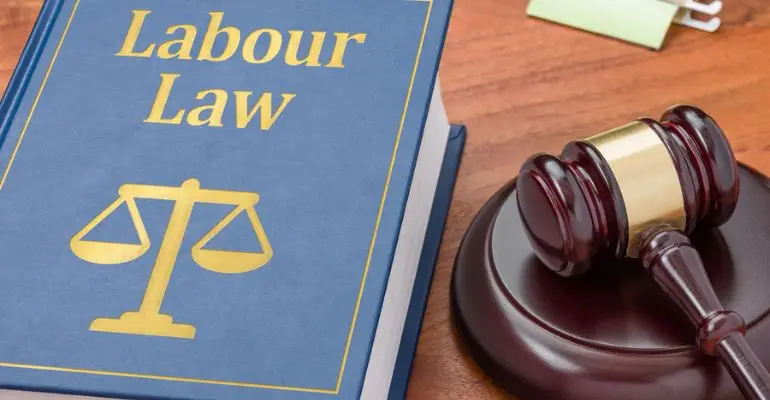Can You Work for a Company After You Sue Them?

Workers sue their employers for many reasons other than wrongful termination. In some cases, the plaintiff in the lawsuit may still be employed by the defendant. What happens next? Can you work for a company after you sue them?
The short answer is yes. In fact, in most cases, the law protects workers from being fired for filing a lawsuit against the employer. As a result, the decision to stay or leave is left to the employee. However, employees must consider all the legal and interpersonal complexities in deciding whether to stay with their employer or look for a different job.
Understanding Legal Protections for Employees
Many laws that give you the right to sue your employer also protect you from retaliation. For example, laws governing disputes over discrimination, pay, and workplace conditions block employers from targeting you for adverse treatment, including:
- Denying promotions or demoting you
- Withholding training
- Cutting your pay, hours, overtime, or benefits
- Terminating you
- Singling you out for different job duties
- Disciplining you for no reason
- Giving you negative job reviews without justification
You have an additional legal claim when your employer retaliates against you. Thus, your employer only makes things worse for itself by retaliating.
In many situations, the law also protects co-workers who assisted you in your lawsuit from retaliation. Thus, anyone who gave testimony to support your claim or reported similar problems will also have a claim if they experience retaliation.
The Realities of Maintaining Employment After Litigation
Retaliation is only one issue you may face if you stick with your employer after filing a lawsuit.
Legal Considerations
The law protects you from retaliation. If your employer does retaliate, you face adding another claim to your lawsuit, as well as the burden of gathering evidence to support that additional claim. In short, going back to your employer might expand your legal issues rather than solving them.
Additionally, before you commit to staying with your employer, you should speak to the litigator handling your case. They may have serious concerns about confidentiality, pressure from your employer to drop your case, or even attempts by your employer to come up with claims against you.
For example, your employer could accuse you of tampering with its witnesses or stealing documents for your case.
In most cases, changing employers will allow you to turn down the temperature on your legal situation and allow the process to play out without adding new legal problems.
Workplace Considerations
You should consider what your working environment will look like if you stay with your employer. Can you sue a company and still work for them? Yes, but would you want to?
The supervisors and managers you called out in your lawsuit might remain employed there.
Just as you expect your employer to treat you fairly, the supervisors you accused of harassment, discrimination, or pay violations will expect due process before being fired. The workplace dynamics of working with those supervisors could range from cold to downright hostile.
You must also consider how your co-workers might view you. Some may admire you for doing the right thing. Others might view you as a troublemaker. Your presence might divide your co-workers into those who believe you, those who disbelieve you, and those who do not care. Thus, returning to work for your employer could result in deep divisions at work.
Career Considerations
Depending on your job, you may be building a career. You should assess how sticking with your employer will affect that. You need to consider where you will get the mentoring and develop the professional relationships that will help you over the long term.
Make sure you also look at your decision from the perspective of an objective outside party. The allegations you made in your lawsuit might taint your employer’s reputation in your industry. You might need to move to a different employer to improve your career, specifically due to the treatment you experienced there.
How to Protect Your Rights and Your Job
You can take steps before, during, and after litigation to protect your employment status and legal rights. You may not need these protections if you ultimately decide to leave the employer you sued. However, by laying the groundwork, you can keep your options open in case you decide to stay.
Seek Legal Counsel
Every situation is unique. What you should or should not do will depend on your job, your employer, and your legal claims. In some situations, the legal risks of staying far outweigh the benefits. In other situations, a lawyer can help you chart a course that allows you to stay at your job while your lawsuit proceeds.
Some factors to discuss with your lawyer include:
- Whether you are a contract worker or an at-will employee
- The claims you have against your employer
- The evidence that exists to prove your claims
- Whether anyone else in the company has similar experiences
- The uniqueness of your job
Based on these factors, you and your lawyer can decide whether you should stay with your employer and, if so, what you should and should not do while there.
Review Your Employment Status
If you are an at-will employee, you can quit at any time for any reason. You can choose whether to stay with your employer after filing the lawsuit or move on to a different employer.
While employers usually have the right to fire at-will employees for any reason, they cannot fire them in retaliation after filing many types of lawsuits. As a result, the decision to stay or not rests in your hands.
Contract employees have many other considerations based on the contract’s terms. You may be obligated to return to your employer after filing a lawsuit if you cannot terminate your contract.
Your employer might have to take you back as long as you did not breach your contract. In this case, neither you nor your employer can unilaterally end the employment. Instead, you will either return or negotiate a termination of your contract.
At the end of the contract, your employer might have the right to allow your contract to expire, effectively firing you without violating the prohibition against retaliation. Thus, if you choose to return, you should keep in mind that your return may only be temporary.
Document Your Interactions
If you decide to return to your job, you should document your interactions with your co-workers and supervisors. While any form of retaliation will likely support a new claim, you need evidence to explain why you believe it was retaliation and not an action justified by something you did.
You should also try to avoid any discussions with your employer about your case without your attorney. Anything you say could be misconstrued or, worse yet, twisted by your employer to use against you.
If your supervisors or anyone in the company’s management or legal team wants to talk about your case at work, politely decline and ask for a meeting your attorney can attend.
Frequently Asked Questions About Suing Your Employer
Here are some answers to common questions and concerns employees have about suing their employers.
How Do I Document Evidence for My Case While Still Employed?
Since every case is unique, there is no one-size-fits-all formula for gathering evidence from your employer.
You should speak to an experienced employment lawyer before you begin gathering emails, witness statements, employee records, and other evidence. The lawyer can advise you about how to document your case without violating state and federal laws or company policies.
If you stay with your employer, you should carefully avoid anything that your employer could use as a counterclaim against you, such as hacking its computer systems or photocopying confidential documents.
The litigation process includes a stage called “discovery.” During this phase, your lawyer will request documents and depositions from your employer. As a result, you do not need to do anything sneaky or secretive to gather evidence for your case.
Can I Negotiate a Settlement and Still Keep My Job?
Yes. There is nothing that prevents you from staying in your job after your settlement. You can even negotiate the terms of your continued employment and include them in the settlement agreement.
For example, in a discrimination case, your settlement agreement may require your employer to give you the promotion or training you were improperly denied. Please note, however, that in the majority of cases, employees who resolve their legal issues with their employers are typically required to resign as part of the settlement terms.
Will My Lawsuit Be Public Record?
Yes. The documents filed in a lawsuit are a matter of public record unless you or your employer ask that they be sealed.
Court rules allow the parties to redact some information, like financial account numbers and Social Security numbers, as a matter of course. The parties must file a motion to seal if they want to protect any additional information.
While the court has wide discretion to seal records, judges tend to favor public disclosure. As a result, you may have an uphill battle to seal records in your lawsuit.
Because lawsuits are a public record, and many employees do not want to create a public record of their dispute with an employer, a private, confidential, pre-litigation severance negotiation is often the best path for employees to take when separating from an employer.
Seeking Legal Representation: When and Why
Can you work for a company after you sue them? Of course, you can. However, not all workers decide to work for an employer they have sued. It takes a lot of courage to stick with a company after litigation has started.
This situation is ripe with legal and career pitfalls, so you should strongly consider seeking professional legal advice while you are considering staying with your employer.
Wenzel Fenton Cabassa has stood with employees against their employers for over 30 years. Our attorneys have decades of combined experience in cases involving all aspects of employment law. Contact us to learn how our experience and knowledge of this area of the law can help you with your case.
Please Note: At the time this article was written, the information contained within it was current based on the prevailing law at the time. Laws and precedents are subject to change, so this information may not be up to date. Always speak with a law firm regarding any legal situation to get the most current information available.
Related Posts
Recent Posts
- False Claims Act Retaliation & Your Rights
- Fired for Being Pregnant? 5 Situations When You Should Call an Employment Lawyer
- Can My Boss Take My Tips? The Laws of Tip Ownership
- What Does “Meets FCRA Requirements” Mean?
- Can Your Employer Contact You While on Medical Leave? Know Your FMLA Rights in Florida
Contact Us

FREE HELP GUIDES
Dealing with unpaid wages, discrimination or wrongful termination? Get the information you need to protect your workplace rights. We offer employment law resources to help you fight for workplace justice.




